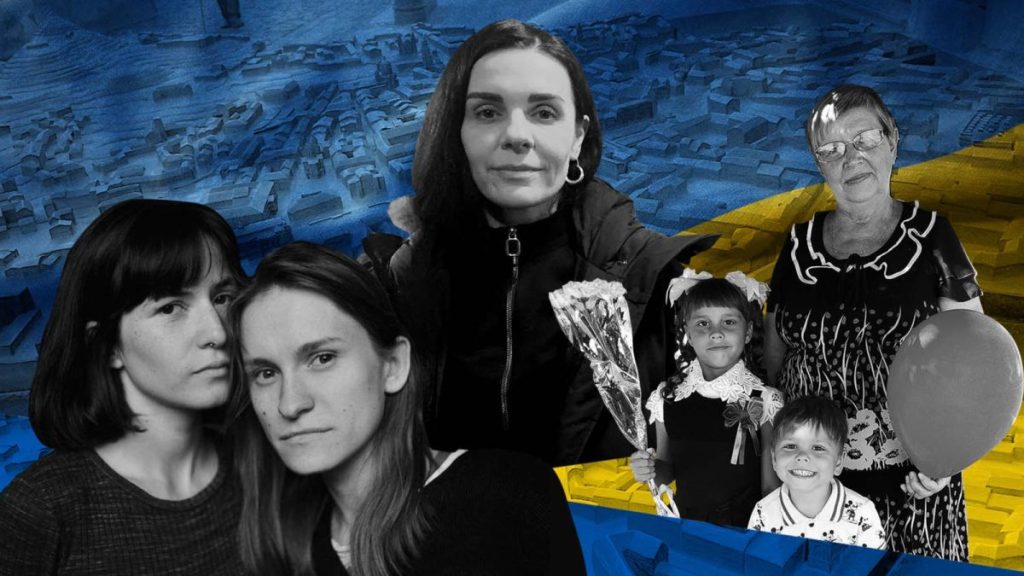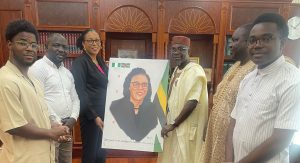For loved ones ripped apart by war in Ukraine, phone messages bring hope and despair

Lviv, Ukraine — In the midst of a days-long, chaotic cross-country train ride to the northwestern city of Lviv, near Ukraine’s border with Poland, a terrible realization dawned on Marina. The 54-year-old carer, who managed to evacuate an orphanage in a besieged industrial town in the eastern Luhansk province, had no way to return to her own family.Marina, who did not give her surname, was still reeling from the journey — days spent desperately trying to calm the panic-stricken children in her care against the backdrop of booms and thuds of Russia’s brutal assault, while still fearing for her family at home. “And now I am all alone,” Marina told CNN from a daycare center-turned-shelter in Lviv, where she and the children from her orphanage were camped out. “I have left my own (adult) children to save the children in the orphanage.” CNN is not disclosing Marina’s full name because of the risks to her family who have not been evacuated.The fracturing of families underpins many of the stories of displacement in Ukraine, where Russia’s violent attempts to wrest control of territory in the country’s east, south and center from Ukrainian authorities have leveled entire neighborhoods. Millions of people are still trapped in besieged cities with virtually no way out. Establishing evacuation corridors out of hard-hit urban centers is proving elusive due to incessant violations of temporary ceasefires. Without safe passage, families are being ripped apart.Several people CNN spoke to in recent days said they have been unable to contact their loved ones since the start of the invasion. They described frenzied escapes from the country’s worst-affected cities, in which parents, spouses, siblings and grandparents were left behind. With the Russian assault knocking out power and telephone networks, whole cities have been cut off from the outside world. Many say they don’t know if their loved ones are still alive. “I don’t understand why the government didn’t try to evacuate us before the invasion started. I don’t want to blame them. Still I can’t help but think my predicament could have been avoided,” Marina added.Frantic attempts to reconnect with family Once a tourist hotspot, Lviv is now ground zero for around 200,000 displaced Ukrainians who have flooded the city in search of relative safety. Several theaters and schools converted into makeshift shelters are now covered in mattresses for displaced people. Streets are clogged with traffic. Around nearly every corner people can be heard making teary phone calls to loved ones who stayed behind in war-ravaged areas.Isabel Merkulova, 31, is a theater performer. These days she sits nervously by her phone, consumed with thoughts of her best friend Anastasiya Lisovska, who is trapped in Hostomel, north of Kyiv. The town has emerged as a key battleground in the war and has witnessed some of its most dramatic scenes — including a showdown at an airport and the killing of its mayor. “I didn’t know what a panic attack was before that morning,” said Rybka-Parkhomenko, an actress and a director at Lviv’s historic Les Kurbas theater. She walked the streets aimlessly, deciding ultimately to turn her arthouse theater into a shelter for the displaced. She shifted between converting the space into a reception point for displaced families and incessantly checking her phone for messages from her parents and brother. The hardest part, she said, was trying to keep other people’s spirits up while she was wracked with worry herself. “It was the most dramatic and important performance we have ever done,” she said of the ordeal, her fingers elegantly interlaced as she spoke to CNN from the basement of the theater, filled with relief items for the displaced. Days later, Rybka-Parkhomenko’s family was able to find safe passage to Lviv with a volunteer aid worker. The journey from Kharkiv to Lviv, which normally lasts two hours, took two days. Others in the theater-turned-shelter are less fortunate. Tamila Kheladze shares a large mattress next to the stage with her two sisters and her year-old son, Denis. Her husband has stayed behind in Kyiv to tend to his shop, as the three women chart their escape to Poland, and then on to Sweden. He had just sent her a text message wishing her a happy International Women’s Day, Kheladze said on Tuesday, her intact French manicure the only visible remnant of her former life. “He said ‘honey, we’ll be together soon.'””I hope I will see him soon, but I think it will not be so soon,” she said, her voice faltering between sobs. “Now we must go abroad as soon as we can. We must go for the children. Only for that.”
div.chatbot_arrow{right: -20px;}
.chatbot_bubble.tx_isabel>div.chatbot_arrow:before{right: 4px;}
.chatbot_bubble.tx_isabel>div.chatbot_arrow:before, .chatbot_bubble.tx_isabel>div.chatbot_cont{background-color: #DCFEC1;}
.chatbot_bubble.tx_anastasiya{left: 20px;transform: translateX(-150%);}
.chatbot_bubble.tx_anastasiya>div.chatbot_arrow{left:-20px;}
.chatbot_bubble.tx_anastasiya>div.chatbot_arrow:before{left:14px;}
.chatbot_bubble.tx_anastasiya>div.chatbot_arrow:before, .chatbot_bubble.tx_anastasiya>div.chatbot_cont{background-color: #E4E4E4;}
.chatbot_bubble.displayed{transition: transform 300ms cubic-bezier(0, 0.25, 0.5, 1.2);transform: translate(0);}
.chatbot_hour{position: absolute;bottom: 5px;color: #00000080;font-size: 12px;}
@media screen and (max-width:640px) {
.chatbot_bubble{width: 75%;}
.chatbot_bubble.tx_isabel{margin-left: 25%;}
}
]]>
CNN’s Sofiya Harbuziuk contributed reporting. Illustration by CNN’s Will Mullery.






